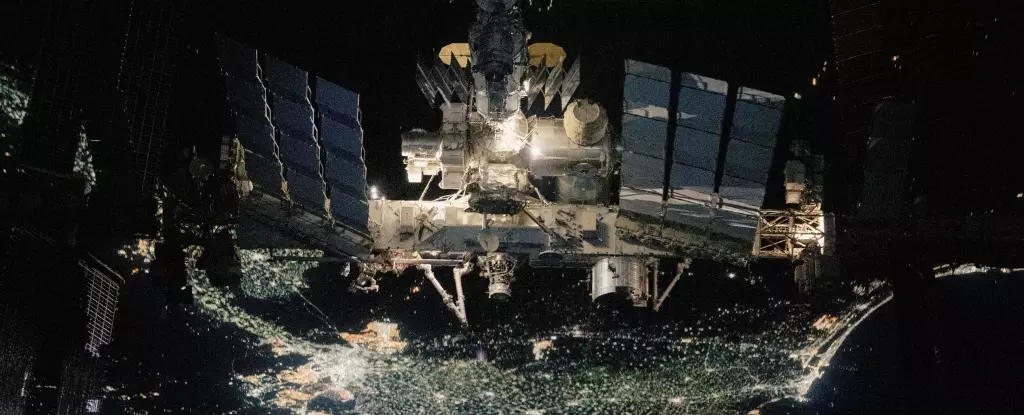On the evening of June 12 CDT, an audio recording surfaced of a flight surgeon on the International Space Station dealing with a potential emergency situation. The conversation revolved around an unnamed commander who required hyperbaric treatment due to decompression sickness. The speaker mentioned the commander’s prognosis being “relatively tenuous,” causing a brief panic among listeners. However, ISS mission control later clarified that the audio was part of a ground simulation accidentally broadcasted to the ISS livestream channel. At the time of the broadcast, all crew members were safely asleep, and there was no real emergency occurring aboard the space station.
Decompression sickness, often referred to as the bends, is a serious hazard that astronauts face in space. It occurs when transitioning too quickly from a pressurized environment to a lower pressure one. The interior of the ISS is designed to mirror Earth’s atmosphere, with a composition of 79 percent nitrogen and 21 percent oxygen, at a pressure close to what we experience at sea level. In contrast, the external environment of the ISS has nearly zero pressure. If there is a sudden change between these environments without proper protection, such as a sealed spacesuit, decompression sickness can occur. The dissolved gasses in the body escape, forming bubbles that can obstruct blood vessels, rupture tissues, and lead to serious medical complications.
Severe cases of decompression sickness can be fatal, making it a critical concern for astronauts on long-duration space missions. Any indication of decompression sickness aboard the ISS would signal a significant problem, such as a breach in the modules or spacesuits. Thankfully, the emergency scenario was only a simulation, showcasing the importance of preparedness and quick thinking in high-stress situations. Ground personnel practice response protocols to ensure they can handle emergencies calmly and efficiently, even in unlikely events like the one simulated in the audio recording.
The incident with the audio recording serves as a reminder of the complexities and risks involved in space travel. While decompression sickness is a rare occurrence, the potential consequences are severe. Regular simulations and training exercises help astronauts and ground personnel prepare for a wide range of emergency scenarios, ensuring they can respond effectively in real-life situations. The ability to remain calm and follow established protocols is crucial in safeguarding the well-being of crew members and maintaining the safety of missions aboard the International Space Station.
The mistaken broadcast of a ground simulation audio recording from the International Space Station highlighted the importance of thorough emergency preparedness and response protocols in space exploration. By conducting regular simulations and training exercises, astronauts and ground personnel can mitigate risks and effectively address potential emergencies, such as decompression sickness. The incident underscored the need for diligence and readiness in handling unexpected situations, ensuring the safety and success of missions in the challenging environment of space.



Leave a Reply